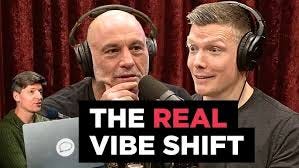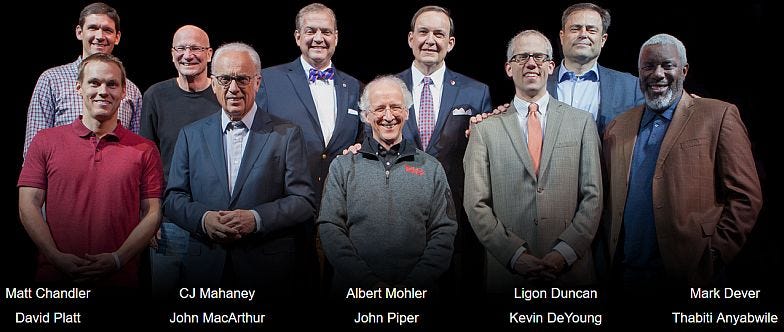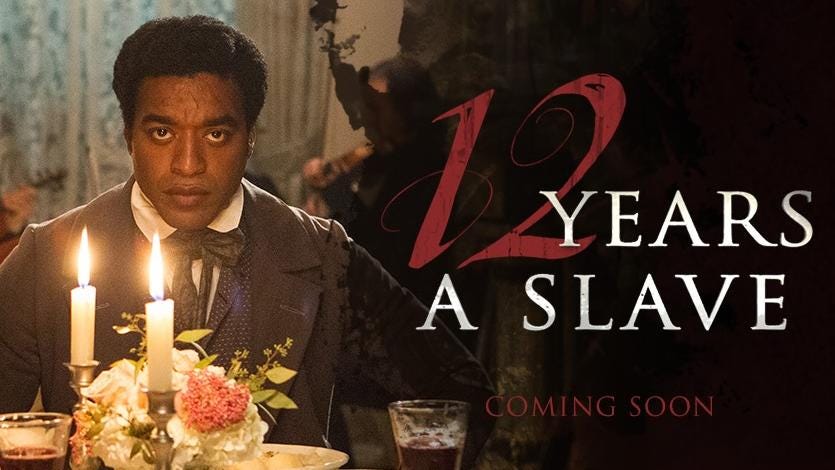How To Be A Christian in 2025
Anti-Institutionalism, The 2010's, and the New Paradigm
Thank you for visiting Church and State! I am three months into this newsletter and I have really enjoyed interacting with folks on the platform. If you would like to take part in the conversation happening here, please consider the following ways to help:
Hit the Subscribe button!
Share with a friend
Comment on the article or note
Introduction
The American church is at a crossroads. As many have noted, a splintering has taken place in ways that seemed unthinkable ten years ago. As evidence of this change, a quick review of the environment a decade ago is helpful. In 2014, Together for the Gospel met for its fifth conference. It was the peak, or maybe the beginning of the end, of the Young, Restless, and Reformed movement that began in the 1980’s, but had emerged in mainstream Christianity by the mid-aught’s. While John Piper’s Desiring God ministry and Tim Keller’s Redeemer Network of Churches in NYC were important parts of the reformed resurgence, Together for the Gospel was the heart of the movement.
At the T4G Conference in 2014, a group of speakers came together that represented the movement. Speaking about the church and missions was Mark Dever. In another main session, John Macarthur spoke about one of his favorite topics, fake Christians. Thabiti Anyabwile, Kevin DeYoung, David Platt, and Al Mohler also took the stage that year, with a variety of messages around the topic of reaching the culture. What is noteworthy about this list is how things have changed. It would be hard to imagine a world where Macarthur and Anyabwile had enough in common to speak at the same conference today. Similarly, men like Platt and Mohler have taken different approaches to the major culture war issues of the day. While there is not outright animosity between these men, they are now traveling in different streams of the evangelical splintering. The “togetherness” of that era has either worn off or been exposed as lacking in depth.
While the Young, Restless, and Reformed movement was reaching its peak around 2014, another movement was hitting its stride. The Revoice Conference, aimed at sexual minorities, was entering mainstream evangelicalism. While Revoice was a major player in the conference world, the idea of reaching LGBTQ folks became a dominant theme in evangelicalism. Wesley Hill, Jackie Hill Perry, and Sam Alberry were a few of the leading members of the group (although they varied theologically in some ways). While these are just a few of the trends from a decade ago, they are indicative of a certain missional vibe at the time - reaching those who had been historically left out. This mission rested on broad tent cooperation among denominations, church planting in difficult contexts, and contextualized ministry in a secular world. It also demanded hyper-nuance around complicated situations. Sometimes, the nuance led to over-accommodation, like with Revoice, but this era had a significant impact on millennial Christians. The paradigm of the day led to folks who typically punched to the right and sought to find a middle ground in the culture war issues.
Things Have Changed…
I became a Christian in 2012 and the “third-way” engagement of the day significantly impacted me. This is probably why my first impulse is typically to find some middle ground with thorny issues. The “missional mood” I was formed in was all about explaining the faith in contextualized ways. For example, many pastors followed in Keller’s lead by preaching the gospel through the lens of idolatry. As his success in NYC affirmed, this was a strategic way to reach secular moderns.
Although I still think this is a good way to interact with culture, the shifts in the past decade have created a situation where different tactics are necessary. The pushback against “woke” Christianity and culture has created new alliances and tribes within evangelicals that has erected walls in the former broad tent. No longer is orthodox theology something to rally around. Instead, the rallying point for evangelicals is their approach to culture. An orthodox person using Keller’s model of ministry is labeled “squishy,” while the culture warrior types are over-labeled with the “Christian Nationalist” term. While this is unfortunate in a myriad of ways, it is the world we are living in.
It is not that America has had some sort of awakening in the past five years. As political consultant Bruce Mehlman recently argued, every movement is a reaction to the current status quo. In America, political moods dominate the culture. In 2014, even though Obama was beginning his second term, there was still a significant amount of pushback against some of the excesses of the George W. Bush presidency. Americans didn’t appreciate the economic collapse that had happened on his watch or the wars in Iraq and Afghanistan. In the vacuum created by Bush’s failure or bad luck, figures like Bernie Sanders emerged with a louder voice than before. While the right had its “Tea Party” moment calling for less government, the energy at the time existed on the Left. The dominant theme was justice for the oppressed and it was seen throughout all of culture. Popular movies like Twelve Years a Slave and The Butler captured the American imagination and the verdict was handed down: it was the era of the historically marginalized. While this may feel removed from evangelicalism, it is not as disconnected as it may seem. Evangelicalism, a populist movement, always reflects American culture in a variety of ways.
Changing Currents
The “vibe” of evangelicalism in the 2010’s was broad and extremely contextualized. Popular thinking at the time argued that reaching large cities, which are often liberal, was the best way to infiltrate culture. The “vibes” lasted for a while, but they began falling apart by 2018 and the Pandemic was the death knell that began crashing the broad tent. Today, contextualization is under-appreciated while depth is valued. After a season of misinformation and confusion from every side, people are in the mood to question and understand important topics. Christians are no exception. The information sector has become democratized and the rise of the media entrepreneur has created a new vibe.
Of course, the vibe shift that has become a common explanation of everything and anything today is just that, a vibe. A vibe isn’t the substance of a culture, it is more like the waves on top of the ocean you can see. What is important are the currents driving those waves. Vibes can change in an instant; currents take longer to shift. In 2014, the dominant currents existed in two big ideas: secularism and inequality. Inevitably, evangelicalism followed culture. The evangelism of that era was focused on reaching those who didn’t really understand the gospel, or those who existed outside of historic norms in the church. While these impulses are still there, something else has replaced the old vibes and changed the entire landscape of evangelicalism in the Christian world. Like a highway interstate system funneling on-ramps on to the major highway, the currents of the past decade of converged together to create one new super current - anti-institutionalism.
This new force in American life (and Western life) has implications for everything - medicine, government, education, climate change, and racial reconciliation to name a few. Americans have decided that the “experts” are not always right, and every view must be subject to challenge. It is within this current that new types of media ministries have become even more important. Not every Christians finds YouTube to be their cup of tea, but it is now the intellectual center of the evangelical world. Certainly mega-churches still exist and older evangelical institutions like seminaries are hanging on, but their time may be limited (Here is an excellent article about the future of seminaries). Instead of an evangelicalism based on authority and institutions, the future of the movement seems to be tied up in a loose band of experts and regular Joe’s engaged in a specific kind of apologetics. This apologetic atmosphere is one where the big life and doctrinal questions are being asked. Protestant teenagers want to know all about Catholicism and vice versa. There is a renewed interest in the Patristics and a culture of knowledge and clarity has replaced the culture of the teens. The questions being asked today are much less about how to best reach LGBTQ people, but looking through Scripture and church history to evaluate the claims of the entire project. Evangelism is happening, but at a deeper level than before.
The Future of Evangelism
What is the point of all this cultural analysis? The answer is fairly straightforward, but is best summed up in three points: 1) evangelism is and always will be the core of the evangelical identity; 2) evangelism efforts must fit with the cultural moment; and 3) the cultural moment today calls for a more knowledgeable and committed core of Christians to engage. For Christians who want to do faithful evangelism in today’s culture, the decentralized nature of the culture must be understood. Unlike a decade ago, it is no longer enough to bring a friend interested in spirituality to church. This is still a good thing, but the pastor no longer has enough authority in our anti-institutional culture to be fully trusted. For those seeking, everything said in a sermon can be run through various online platforms and tested against Scripture. This certainly adds weight to preaching pastors, but also puts more onus on average Christians. For an effective witness today, the amount of knowledge needed has drastically increased.
I do not want to overstate the need for knowledge today. There will still be people who hear the gospel walking down the street or are handed a tract and will convert. It is not that old methods are completely gone, but they are no longer dominant. The Crusades of Billy Graham are unlikely to be replicate anytime soon and the forum for mass messaging is now online. Christians who want to have an impact on evangelism today must respond to this moment. This means two major changes have to take place: ideas must be better formulated, and a new type of flexibility will be needed. The ideas of today, specifically in responding to questions about the faith, will have to be rooted in more knowledge. It is no longer enough to say that you are someone who follows Christ but only focuses on the basics. These basics are important, but you will also need answers to complex questions. Why are all humans guilty because of Adam eating the forbidden fruit? What exactly happened on the cross Christ hung upon? For too long, these questions were allowed to linger. In today’s age, answers must be given. If evangelicals will not give an answer, Catholics and Orthodox Christians will. Not only will this help in individual formation, but it will also strengthen the laity of the church.
If the old days of presenting an interested unbeliever to the pastor or dragging them to a revival are over, this means that most of the evangelism will be done out in the world. The architect will have to answer questions about the morality of fertility treatments and the professor will encounter students who have learned more from YouTube about the “ordering of loves” than was taught a decade ago in a basic philosophy class. This is not saying that everyone will become an expert, but the target on apologetics has certainly shifted. While most Christians in the nineties had some language around evolution, today, most Christians must have some language around more complex questions.
This is an exciting time to be alive - information has become democratized in new ways. Of course, this is not all good. I worry about AI and understand the many challenges the American church faces. It is a time of opportunity though. Christians in America are being called to go deeper and wider than before to reach the culture. If we are to take Christ’s commands to “make disciples” seriously, the preparation must start now.





'the preparations starts now" what a fitting way to end this post and challenge all of us!